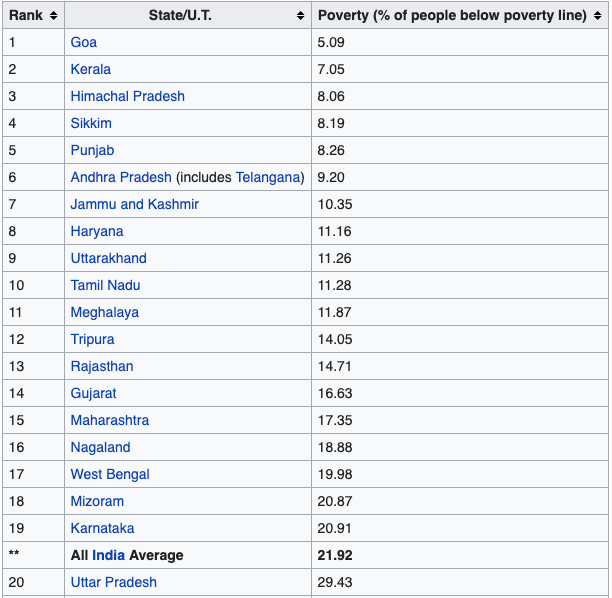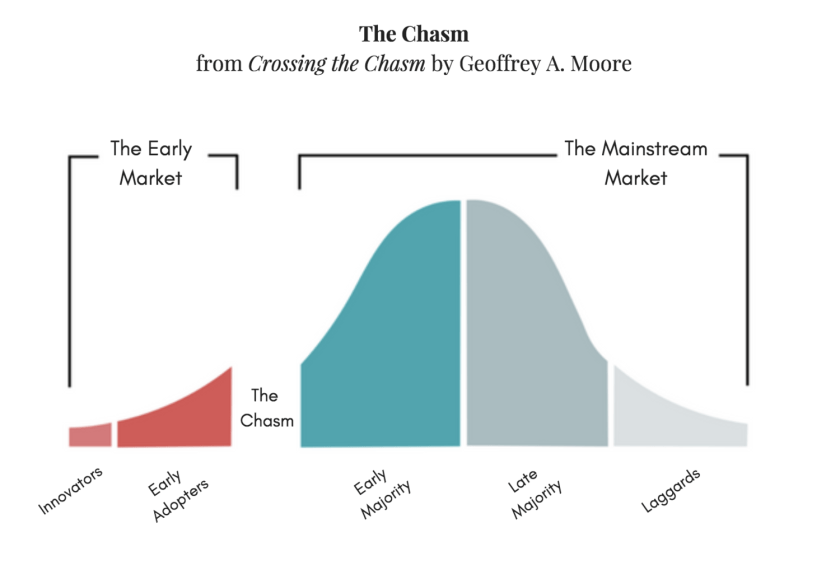The Problem
Well in my last blog I spoke in detail about my decision to join Jagriti and help them run their incubation center in Deoria. Frankly when I came to Deoria to run this incubation center I wasn't remotely aware of the problems the area faces. I am glad I chose to come else I'd have never discovered a different side of India where life is diametrically different from the A class city life I've been used to all this while. Credit goes to my friend Jatin Srivastava too who connected me to Jagriti. I was this quintessential tech guy loaded with this unidimensional ideology that any problem on Earth could be solved by using tech. I wouldn't entirely blame Marc Andreessen for writing this cult blog ,'Why software is eating the world' . Part of me was also responsible for not acknowledging there are fuzzy problems that don't have a binary solution. A survivorship bias every techie suffers from is the conception that tech has solved a lot of problems and can solve any problem irrespective of the fact that the sample set where tech has near about failed in solving problems is larger than the previous one. Take for instance Cancer; we really don't have a cure even now when tech has reached its epitome if Techcrunch or Elon Musk is to be believed. Unfortunately a techie cannot comprehend reality outside his IDE. What is even more baffling is the fact that not only was I a techie but a successful product manager and an entrepreneur associated with several product releases. I would spend hours doing sales calls and presales meetings yet I had no clue about how the other 80% India behaves. I would call it a massive failure on my part.
Anyway before I habitually digress to some unknown terrain lets get back to what we started with. Let us talk about the problem. What do you think could be the biggest problem India faces? Is it unemployment as the debate has been going on in Lutyens lately? Is it corruption we have been trying to grapple with for close to 5 decades? Does it have something to do with forces of communalism and bigotry? Is it red tape or nepotism that is eating us away? Is it lack of fundamental research? Is it our vast population? Is it lack of economic policies in place? is it dearth of leadership at the top? Now most of you would either choose one or more and I am sure you'd have your reasons to back your choice. Unfortunately this isn't a CAT MCQ where only one option holds true. Most of these pieces are symptoms of a larger problem or should I say problems. Without much ado let me introduce our stars of the evening 'equity and equality', 'incompetence' and 'a lack of accountability mechanism'.
I mean we have been hearing our politicians screaming their guts out on the aforementioned issues in lacklustre and mostly irrelevant debates hosted by chatter box journos who wouldn't let anyone speak on their respective shows. Unfortunately the stuff they speak about has nothing to do with reality. I too would blame it entirely on the political system had I believed Ruchir Sharma when he mentioned the same in his book 'Democracy on the road'. But the stark reality of things is seemingly different. My job in Deoria took me to a lot of places in Eastern UP and made me meet hundreds of people if not thousands. I would have spoken with countless people in this part of the world with gazillion world views-ignorant to indifferent. I'd have asked millions of questions to crowds comprising of shy teenagers, apprehensive middle agers and despondent septuagenarians only to receive precious droplets of reality that helped me excavate the real problem. Let me lay it down for you so you too can breathe in and assimilate why we are still tagged as an under developed economy.
I mean the first thing that comes to mind is obviously a political system apathetic to the needs of the diaspora. As much as I'd like to agree with the same to some degree, the truth is entirely different. A large part of our problem is because policies made in India are by products of populism than pragmatism. Take the case of reservations which were created to establish equality but ended up being vehicles of equity devoid of meritocracy. Next time you're standing in a bank queue(doesn't really happen these days) with a paan spewing babu talking on his mobile about the state of inflation without giving two shits about the people in the queue, do remember this conversation. Reservation created equity assuming people tangled in backward sensibilities would largely benefit if the path to selection is softened for them. It didn't intend to propose mediocrity as a new variable but people from different sections, communities and sub sections took it as their staircase to paradise. It affected our meritocratic reforms and produced less than mediocre employees especially in the Government sector severely affecting the productivity of the Government.We would talk about it in a minute but for now let us talk about equality.
What about equality? Before we delve deep into equality, let us first start with the definition. Equality is treating everyone the same. It means being fair to everyone irrespective of caste, religion, creed, ethnicity, region etc. Our constitution was created to promote an environment of equality. In fact Article 15 (1) and (2) prohibit the state from discriminating any citizen on ground of any religion, race, caste, sex, place of birth or any of them. Our filmmakers had to make an entire movie to promote the concept which is still not practised in many parts of the country. Some of the poorest sections of the society face social discrimination and are are sometimes ostracised. All the aforementioned over the last 7 decades has led to social isolation for a lot of diverse groups in the country resulting in ignorance, illiteracy and to top it all poverty. The government was wise enough to notice and decided to deal with it. Unfortunately the policies it created around that were sub optimal. Instead of promoting equality and fairness by endorsing egalitarian values they started laying a foundation for creating an equity based system. What they failed to acknowledge from the equation is that if you make things simpler for some people it would not guarantee the selected person has the competencies required to do a job efficiently. That is exactly what has happened over the years and today I am afraid incompetence has decimated any shot we had of world domination. Though we keep on blabbering the same at various congregations but the fact is we have defunct government departments filled with some of the most incompetent people who pull our country backwards with their incompetence and lackadaisical attitude. But we will come to that later. In a bid to promote equality and fairness we created this multiheaded hydra that is gulping down any chance we have of becoming a developed nation. In Eastern UP we still see ethnic clashes that spread like wildfire over petty issues. I had a guy ask me for the first time in my life what caste I belonged to on a railway platform. I mean more than taking offence out of it I was puzzled about my own identity as I really didn't think about my caste till that moment. I told him him I am an Indian and that is all I care about much to the gentleman's chagrin.
Let us talk about incompetence that has plagued our nation for close to 5 decades now. What really could be responsible for such gross incompetence? Can anything be done to tackle this armageddon? What measures need to be put in place? If I were to answer these questions I'd start with the first principle question which revolves around the reason behind such incompetence. The reason why incompetence exists is because our system does not allow people to be laid off unless they do things as deplorable as one can imagine. This singular facet has led to the development of a love affair a majority in this country have towards government jobs. Imagine 40 percent of the population applying for merely a couple of lakhs of government jobs in the country.Everyone I have spoken to over the last 2 decades have expressed an interest in being a part of a government portfolio in some role. I got a friend who works for a big software services company and has a lot of issues to crib about, his job being one of them. Although he is paid decently and can easily fend for himself and his family he still eyes a government job since he doesn't wish to work that hard anymore and still be insulated from layoffs. That was perhaps the reason 2 decades back people wouldn't give their daughters hand in marriage to anyone who doesn't do a government job. All this has set in motion an endless wheel of incompetence. The fact that most of the departments do not function that optimally is because we really don't have a mechanism to deal with incompetence which brings me to my third reason lack of accountability mechanisms.
The other day I was reading 'Measure what matters' by John Deere , one of Silicon Valley's investment pioneers and came to the conclusion that its pertinent to measure productivity since growth is a function of productivity. In my decade long corporate career in software there were always KPIs that you had to keep track of while fulfilling your goals and objectives. Then maybe a decade back Google came up with OKRs that changed the world of metrics forever. Now employee productivity could be measured on what objectives they decide to achieve over a quarter with a tangible number. With so much of sophistication around metrics and analytics through which human productivity can be measured I am almost gobsmacked when I see our government departments devoid of such mechanisms to measure productivity. Lack of such accountability measures has given free passes to majority of government servants who don't deliver. When the collective psyche of a larger part of the government employees revolves around LTAs or CSD canteens with work being the least of their priorities we get into this quagmire of chaos. A majority of government employees are barely serious about their work and the groundbreaking implications it would have on the country but are still being paid from the taxpayer's hard earned money. There is no way to hold anyone accountable for their actions or rather a lack of it. Now imagine an entire utopia that behaves exactly like that. A policeman who refuses to lodge an F.I.R. since he would have to work on the investigation part once the case has been filed which explains why most crimes go unnoticed till a media house yearning for a sensational piece taps it up and gives it the much needed airtime. A banker who doesn't wish to follow up on a bad loan that explains why NPAs are that high in our country far as nationalised banks are concerned(what's even more surprising as a NABARD official told me is that banks don't follow up on loans and end up having a defaulter even for a loan at 4 percent interest as opposed to micro finance houses that serve loan at 24 percent interest and still recover more than 95 percent of the loans because of a healthy system of follow ups).If this isn't incompetence what is. Government doctors are more worried about treating private patients in their day jobs than doing their duties in government hospitals where the poor and the needy need their support. A teacher in a Kendriya Vidyalaya is not equipped enough to teach the basics of why a mathematical theory is there in existence and how it is applied in real time scenarios to solve problems. Almost every government department I visited had such illustrious use cases if I am permitted to use a bit of satire. Now the degree to which such deterioration has spread is colossal. If you trace back the actual reason why it has happened and encouraged incompetence is because we have never put processes in place that could measure individual productivity and incentivise high productivity individuals penalising people on the other side of the spectrum who are seen as liability. It even includes bureaucrats and above all politicians who hold positions of power but hardly work towards public welfare not to mention the existing stench of corruption and mismanagement of public funds.
As a result of the above mentioned factors the average household in India has been reduced to a per capita income of 7000 USD. Now when it comes to UP there are close to 29.43% people below the poverty line as per this survey
This is a dangerously high number and is increasing at an alarming rate that in itself gives rise to crimes. If you've read the cult book Freakonomics by Stephen Levitt you'd know that legalisation of abortion in the US cut down crimes by almost 80 percent. Similarly if in a growing economy there are millions of people roaming jobless they would resort to crimes to run their households. If you ever read Dongri to Dubai by C. Hussain.Zaidi you'd discover the reason why underworld became so active in the 90s is because a lot of unemployed youth migrated to cities like Mumbai to become a part of the organised mafia. The ramifications of poverty could be severely catastrophic to the nation in the larger scheme of things. So now if poverty has to be eliminated we need to provide jobs to a lot of young people. If you need to place these youth in different setups where they can make a decent living you need to upskill them .This is where our honourable Prime Minister has done commendable work in identifying the need spot on and starting Skill Development Institutes across the length and width of the country.Once skilled these people could be absorbed by the industry. Now there is another problem we aren't aware of. Let me take the next paragraph to elucidate the same.
In India the organised industry needs labour for the organisational pyramid for different jobs laced with associated skillsets. The job pyramid starts with jobs at a minimal level say drivers, cooks(As long as I was in SAP I was party to free lunches and dinners in their India location which had a kitchen employing thousands of people). But there is a limit to such openings. We can't have more than 80 percent of the country's population migrating to top select cities in search of livelihood. Migration will drain resources from a city and would be detrimental to growth.Looking at what happened to Chennai due to ground water drying up its important we stop cross migration. But if we were to stop that we need to have a formidable mechanism to provide employment to a lot of people.
We at Jagriti realised it earlier than other folks in the country which is why our founder Shashank Mani Tripathi has been encouraging the creation of small scale industries for almost a decade now. The idea is relatively simple. Create an ecosystem conducive to the creation of small scale industries and then help them thrive and grow. They in turn can absorb manpower locally from the respective region. That would stop migration since the amount of money people save in cities is relatively proportional to the money they make here since locally they don't have to worry about rent and food. It would also drive the national economy at a macroeconomic level contributing to the GDP appreciably. This sure looks drastically simple but is there a catch. There always is a catch.
The catch is Eastern UP has had a history of being at the centre of the Colonial rule in India. People either worked for a local king, feudal lord, trader or the East India Company(Mangal Pandey et al). Even post independence labour moved around various parts of India namely Punjab, Maharashtra, Karnataka etc. So the basic occupation people have been religiously doing has been to work for other people save a few cases where self employed women/men started working for an enterprise supplying things they would create indigenously. So people seemingly have a low risk appetite in this region.Due to which the said region has very low entrepreneurial activity inspite of a huge demographic dividend. Most entrepreneurial ventures out here fall under the bracket of micro industries out here. Out of which women led enterprises are around 5% with more than 80% of women in that category being self employed. Add to it 3 decades of Nehruvian socialism and you got a perfect recipe for a non entrepreneurial region.What we are trying to do is go against the tide and build an entrepreneurial landscape in this region not known for entrepreneurship which is seemingly difficult since it requires a complete mindset shift. Anything against the path to least resistance is difficult to achieve if we talk about cognition specifically. Now let us talk about what Jagriti Enterprise Center is trying to achieve through its incubation center.
We have created an incubation center that is going to help small enterprise creation and also nurture existing businesses by design. We plan to tackle three important problem categories, businesses in this region tend to face. One being mentorship. Second being the market connect aspect. Last but not the least and perhaps the most important aspect would be the funding part. We help companies in various phases of business in terms of the above. You know although the basic economical facts remain the same for every business, small scale businesses are seemingly different from many startups that we keep hearing about. There are seemingly different sensibilities at play. You have a lot of smart women who are innovatively running their businesses but barely get a mention in the tabloids. Shradha Sharma and Yourstory were kind enough to write a piece on what Jagriti Enterprise Center is trying to establish through its incubation centre. Unlike a YC or a techstars where most problems revolve around product, design or tech I have issues in JECP revolving around damage control, conflict management, outreach, marketing, sales management, growth, communication, funding, hiring, culture, strategy, operations and leadership. On a daily basis we meet people who have never heard about or dared to think about entrepreneurship. Guys from an incubation center can wreak havoc in their peaceful lives. Our guys get all types of responses when we go and meet people in rural households in some of the remotest parts of the country. I can empathise with the people since they have been victims of sinister governance over 5 decades and something alien as incubation could alarm their amygdala and trigger fear in their hearts(fear of the unknown is anyways a scary situation and Robert Sapolsky from Stanford would agree with me on this).
I think what we are doing could actually help the country grow exponentially since micro industries are the growth levers India requires. What is difficult would be to help companies with things like funding a primordial need and perhaps the toughest nut to crack. Banks in this region seem to have abnormally high NPAs due to which loans are not disbursed to a majority of businesses no matter how convincing the pitch seems. How do you then fund a majority of businesses at the seed stage or later? Do you get in touch with VCs who might not be that inclined due to small ticket sizes? Do you speak with angels who might not be that interested since the ROIs might not be that gigantic as tech startups provide? Do you approach micro finance institutes who aren't that active in this region? Do you approach academia who are also short on budgets? Do you approach bodies like NABARD or SIDBI that have red tape and bureaucratic cycles of 18 to 24 months by which a small scale entrepreneur would have migrated to a big city fending for himself as a daily wage worker? So the question is who do you approach? Well seems no one has a clear answer which is what makes it all the more interesting for us. We will crack it in due time and share how we did it for the rest of humanity to benefit from it.
Let us talk about mentorship which is where our real focus is. Now Mark Zuckerberg may say in his Law of Information sharing that amount of information people share is going to double every year based on 4.5 degrees of separation on facebook but when it comes to this side of the country things are quite different. We might live in an information age but information barely reaches here. When I go down and speak with inhabitants of this place and ask them about several things that have happened or are happening all I see is a bunch of puzzled faces. Now since this part of the country happens to be stuck in a time space warp which has inherently insulated any information seepage all this while, most of what happens around the world are things people in this geography are oblivious to. On top of that if you don't have adequate access to electricity, telecommunication and the internet you might not receive information in the first place. The education system also is based on archaic models and doesn't help raise awareness in the social utopia out here. To make matters worse this region gets submerged in knee deep water during heavy rainfalls as it happened this year which leads to panic and chaos. Things are seemingly difficult for the denizens in this region. Where survival becomes an issue and there is existential jeopardy at play information deficit might not be that important. We empathise with that and that is exactly what we keep in our minds while we mentor our current crop of companies. We train them on whatever is required. I remember teaching equity math to a set curios onlookers who had no idea what was going on but once they understood they thanked me well enough to invite me for dinner at their place. So mentorship is the need of the hour and we are doing our best to mentor them and steer them in the right direction.
A large part of the businesses that come to us need to scale up their operations outside UP. They have absolutely no market connect and aren't really aware of the intricacies of online selling. Some of them wish to create new supply chains to other parts of the country. They need help setting up these supply chains. Most of these businesses have achieved a product market fit but as Geoffrey Moore talks about the chasm in his cult book 'Crossing the chasm' , they are stuck at the level of early adopters and can't crossover to early majority which would make them sustainable businesses.
At this point if we were to believe Peter Thiel in 'Zero to One' it becomes a distribution problem and the value of the product needs to reach a sizeable majority for virality to happen. This is where we come in and using our vast Yatri network and JADE network we ensure our incubated companies to connect with markets across India and abroad. This helps them maximise their revenues and scale up to a level where they become sustainable. At this point of inflexion they also tend to absorb a lot of manpower which helps reduce unemployment too.
What we are doing has never been tried before at this scale specifically for small scale businesses. In fact our physical infrastructure that we are building at Barpar would be a state of the art architecture housing small scale businesses. The magnanimity of the physical space would speak volumes about our grandiose ambitions on revamping India through small scale enterprise creation
Now that you know what we do and what we plan to achieve, you do realise we need talented people to come and help drive this mammoth project. If you have ever toyed with the idea of helping our nation, this must be a great project to help you execute your ideas. More so as a techie I have always believed in the indomitable spirit of the human mind and believe we could solve some of the biggest crises we are facing today by sheer perseverance, grit and determination.
I'd leave you with this line Neil Armstrong said after landing on the moon,"That's one small step for man, one giant leap for mankind". Jagriti could be that small step that could trigger an entrepreneurial revolution in India. Come and be a part of it. You sure don't want to miss out being on the right side of history-do you?






